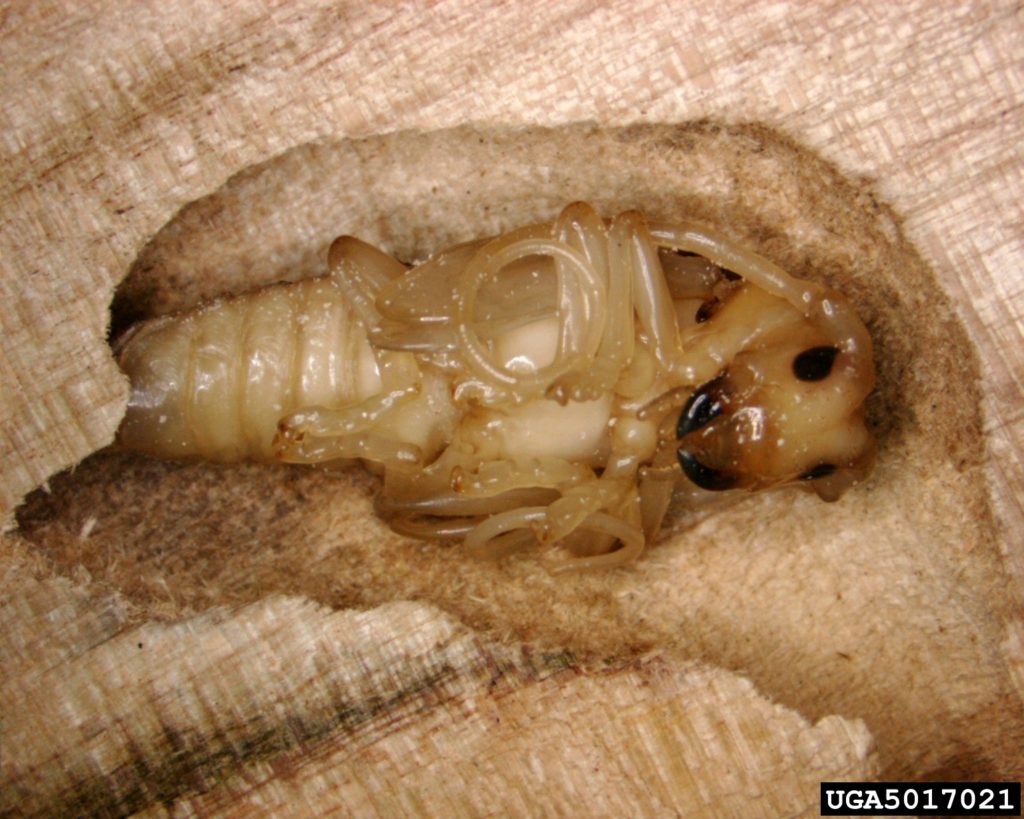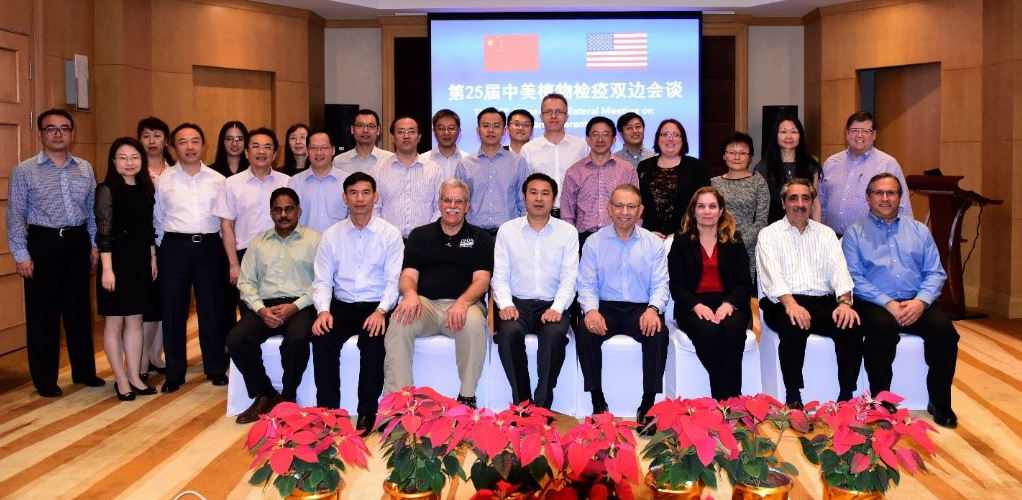
APHIS has apparently passed up an opportunity to pressure China to clean up its wood packaging – although China ranks among the countries that most often violates ISPM#15 and sends wood packaging infested by quarantine pests. (See the blogs under the category “wood packaging” on this site.)
In May, a large delegation of APHIS employees met (virtually) with an equally large delegation of its Chinese counterpart to negotiate “technical protocols” linked to the Phase 1 trade agreement with China. The focus of the negotiations was on Chinese phytosanitary barriers that block exports of US products to China.
The two countries have now signed technical protocols to allow the United States to export to China a wide range of commodities estimated to be worth between $700 million and $760 million annually when the agreement is fully implemented. These commodities include barley for processing, hay, some fruits (blueberries, avocados, nectarines), almond meal, and chipping potatoes.
Some of the agreements cap years of effort. The example cited is chipping potatoes. Negotiations continue on some other U.S. exports to China, including logs.
An article in APHIS’ online newsletter reports that “On the import side, we are working on the requirements for China’s requested commodities….” Presumably these would be exports to the U.S. The examples listed were all fruits.

I inquired whether wood packaging was part of the negotiation.
Andrea B. Simao, Assistant Deputy Administrator and Director of PPQ’s Phytosanitary Issues Management unit, replied that SWPM was not raised “since there has [sic] not been significant issues.”
Instead, she detailed efforts in the ongoing negotiations to persuade China that U.S. phytosanitary treatments are sufficient to control various pathogens in logs: oak wilt, phosphine on conifers, pinewood nematode.
Apparently the focus was fully on US exports and nobody raised US concerns about the risks of imports from China. This approach fits the Administration’s emphasis on exporting agricultural commodities to China. However, this is not reality. Over the past five years, I have frequently cited USDA’s own data – which demonstrate the likelihood that wood packaging will transport tree-killing pests from China to the U.S.

Please inform your Member of Congress and Senators (or candidates for House or Senate) about how you feel about this failure of USDA to protect America’s natural resources. We must raise the political heat in order to pressure USDA into placing as high a priority on protecting US natural resources as it does on supporting agricultural exports.
Posted by Faith Campbell
We welcome comments that supplement or correct factual information, suggest new approaches, or promote thoughtful consideration. We post comments that disagree with us — but not those we judge to be not civil or inflammatory.
For a detailed discussion of the policies and practices that have allowed these pests to enter and spread – and that do not promote effective restoration strategies – review the Fading Forests report at http://treeimprovement.utk.edu/FadingForests.htm